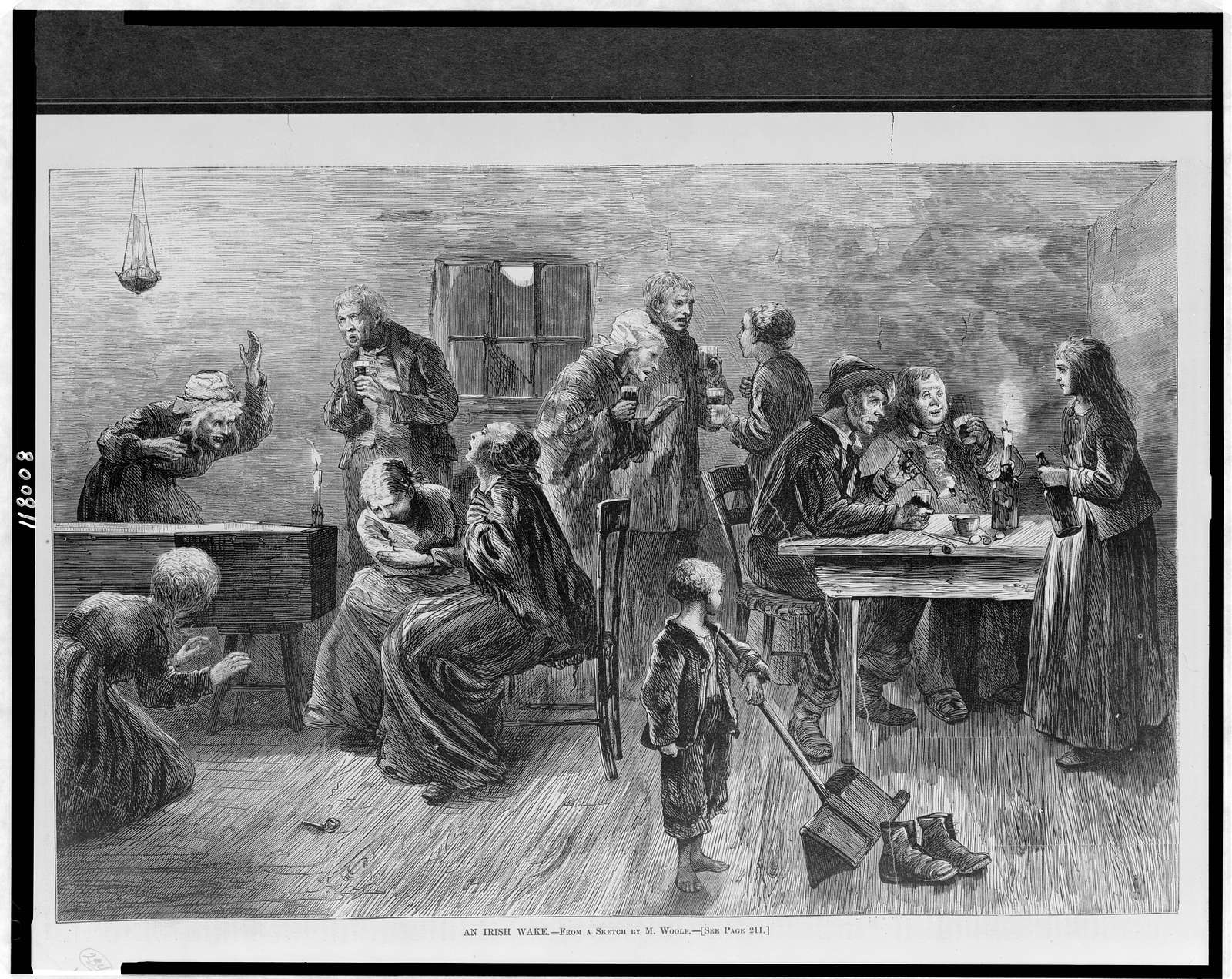The Irish wake is a famous, but not wholly original practice, that essentially entails “waking” the body typically over the course of 1, 2 or 3 days and nights.
Although its origins are somewhat darker, the modern Irish wake is now considered a celebration of deceased person’s life, a time for people to pay their respects, and an opportunity for the family to grieve before a funeral mass.
The Irish wake is primarily an Irish Catholic practice, and normally involves prayer, stories told about the deceased, food and maybe the odd drink…
What is an Irish Wake?
What happens during an Irish Wake?
During an Irish wake, the body is laid out on display for the family to see and pay their respects to. Usually, this will happen at the dead person’s last home. In other cases, depending on the nature of the death, size of home, and familial ties, the wake may be held in a relative’s home.
In previous centuries, the body was laid out so it could be cleaned. Today, however, a funeral home will cleanse and prepare the body for public display, before returning the deceased person to their home.
There are many traditions within Irish wakes, the majority of which are learned, unwritten and passed down through generations. These traditions can also change slightly depending on the region of Ireland you’re in.
The body will be placed on display in an open coffin, generally holding Rosary Beads or a Crucifix, in a bedroom or a similarly private room beyond the main areas of the home. Visitors to the home will be welcomed into the living room or kitchen, offered food and drink, and be allowed to pay their respects as and when they want. In some cases visitors will return to the wake room more than once. Typically, throughout the wake day, a woman will stay with the body constantly and it’s tradition for men of the family to take over this vigil throughout the night.
The wake finishes on the day of the funeral.
Prayers
Ireland is a majority Catholic country. Therefore, people will often recite Catholic prayers during wakes. Often, these will be prayers that the deceased would enjoy reciting during their life. Other popular prayers include “May you see God’s light,” The Glory Be,” “The Lord’s Prayer,” and “The Angelus.”
Songs
As mentioned, nowadays the wake is about celebrating life more than mourning a death. So, it’s common for there to be music.
Singing isn’t typical at every wake, and depends largely on the talents of the family, but songs will include favourites of the deceased, alongside more traditional Irish numbers.
Food and drink
During a wake, there is, of course, plenty to eat and drink. Family members will bring along sandwiches and other shared food. And if you hang around long enough, depending on the household, you may get a sup of something else…
Why do the Irish have Wakes instead of funerals?
Origin of the ‘Wake’
It would appear that the wake is as old as Ireland itself.
With no clear and definitive starting point, the wake originated out of a mixture of necessity, Celtic and Pagan ritual and ancient superstitions around the nature of life and death.
It’s well know that medical knowledge and care in previous centuries wasn’t what we know and expect nowadays. As a result, previous generations of Irish men and women “waked” a body to ensure the person was actually dead. As unlikely as it seems nowadays, there were reports of people being buried alive during an illness which made them appear completely deceased…
Beyond that necessity, it’s suggested that the nature of the Irish wake is wrapped up in Celtic, Pagan and even older notions of celebrating the life of the deceased before they move into the next realm.
–
The Irish relationship with death is complex but visible, front and centre within Irish culture.
The Irish wake is the embodiment of this. Death is introduced to Irish children from a young age, to encourage an acceptance and understanding of the nature of life.
What started as a necessity, due to a lack of medical knowledge, has developed into a meditative practice to celebrate a life and ease the burden of grieving family.

